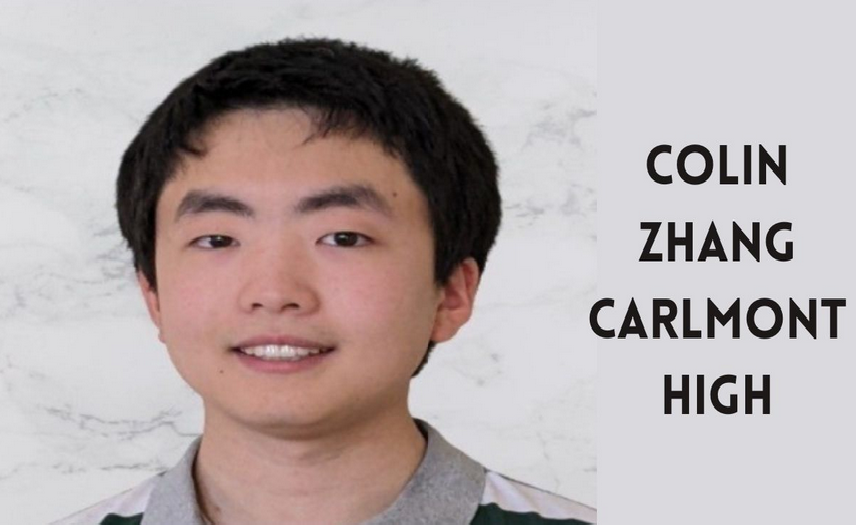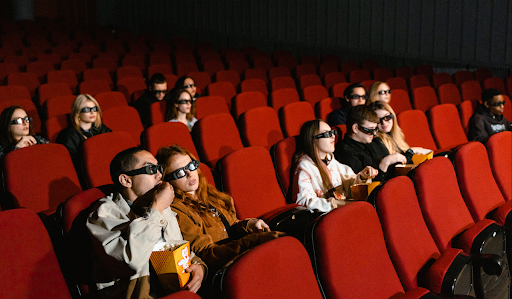Colin Zhang Carlmont High: From High School Prodigy to MIT AI Visionary
When discussing the forefront of AI in medical diagnostics, it’s impossible to ignore Colin Zhang of Carlmont High. A name that’s steadily rising in both academic and research circles, Colin Zhang began his journey at Carlmont High, where his early fascination with artificial intelligence and data science took root. Now a prominent contributor to cutting-edge AI development at MIT, Colin’s work is reshaping how machine learning can be used to revolutionize healthcare.
Early Foundations at Carlmont High School
At Carlmont High, Colin Zhang demonstrated an early and exceptional interest in computer science, mathematics, and biology. These interdisciplinary passions fueled his ambition to solve real-world problems using AI. Not content with standard curriculum offerings, Colin immersed himself in advanced coding projects, biology competitions, and independent AI research—gaining attention from both teachers and tech mentors alike.
During his junior year, he spearheaded a school research group that applied machine learning models to predict protein structures, foreshadowing his future academic pursuits. Faculty at Carlmont still recall how Colin consistently blended classroom theory with practical innovation—a quality that would define his career path.
Academic Excellence and MIT Admission
Zhang’s academic record was nothing short of exceptional. He graduated among the top of his class, earning numerous awards in national math and science competitions. His application to MIT stood out not only for his grades and test scores but for his well-documented AI research projects, particularly those focused on diagnostic tools for rare genetic disorders.
His admission into MIT wasn’t just a personal victory—it was a testament to how a strong academic foundation at Carlmont High could prepare students for elite institutions. At MIT, Colin continues to blaze trails in AI, now equipped with the resources and mentorship to take his ideas global.
AI and Medical Diagnostics: A Purpose-Driven Mission
At MIT, Colin Zhang’s primary research revolves around using AI to transform medical diagnostics. Traditional diagnostic methods are often slow, expensive, and inaccessible to many populations worldwide. Colin’s approach integrates deep learning algorithms, computer vision, and large-scale medical datasets to provide quicker, more accurate, and scalable solutions.
One of his most notable projects involves training convolutional neural networks (CNNs) to detect early signs of diseases such as diabetic retinopathy and lung cancer from simple imaging scans. These models significantly outperform traditional methods in both speed and accuracy, making them potential life-saving tools—especially in under-resourced regions.
Collaborative Projects and Real-World Impact
Zhang doesn’t work in isolation. His work is deeply collaborative, involving interdisciplinary teams of biologists, computer scientists, and clinicians. At MIT’s Computer Science and Artificial Intelligence Laboratory (CSAIL), he co-leads research on integrating AI into telemedicine platforms, enabling remote diagnosis with high precision.
His collaboration with hospitals and health-tech startups has led to the development of prototype tools currently being tested in clinical trials. One such tool—a smartphone-based AI system that can detect skin anomalies—promises to democratize access to dermatological care.
Ethical AI: A Core Focus
While innovation is central to Colin’s work, he is equally committed to ethical AI development. He frequently publishes on the importance of bias mitigation in medical AI systems, ensuring that diagnostic tools perform equally well across diverse populations.
At a recent MIT symposium, he presented findings showing how training datasets that exclude minority groups can lead to dangerously inaccurate diagnoses. His proposed solutions include synthetic data generation, fairness-aware training, and bias auditing protocols—contributions that make his work both technically brilliant and socially responsible.
Colin Zhang’s Vision for the Future of AI in Healthcare
Zhang envisions a future where AI doesn’t just augment healthcare—it defines it. From early detection of chronic illnesses to predictive modeling for patient outcomes, he believes AI can make healthcare smarter, faster, and more humane.
He advocates for a hybrid model where clinicians are empowered by AI, not replaced by it. His vision is one where AI tools provide recommendations, flag anomalies, and streamline workflows, allowing doctors to focus more on human-centered care.
Publications and Recognition
Despite his young age, Colin Zhang has already co-authored multiple peer-reviewed papers published in prestigious journals such as Nature Medicine and The Lancet Digital Health. His work has earned him accolades from MIT, the IEEE, and international health-tech conferences.
He was recently named a Forbes 30 Under 30 in the healthcare category, a recognition of both his innovative research and his commitment to improving global health outcomes through technology.
Giving Back: Mentorship and Outreach
Despite his packed schedule, Zhang remains closely tied to his roots at Carlmont High. He regularly returns to mentor students interested in STEM, offering guidance on AI projects, college applications, and research methodologies.
He has also launched a summer coding bootcamp in collaboration with local nonprofits, aimed at introducing underserved students to AI and machine learning. His efforts reflect a strong belief that access to knowledge should never be a privilege.
Expanding Horizons: Research Beyond the Lab
Colin Zhang’s curiosity doesn’t end at the lab bench or in front of a computer. He is deeply engaged in expanding the real-world application of AI in medicine through partnerships with international health organizations. In recent years, he’s been involved in initiatives to bring AI-based diagnostic tools to underserved communities in South America, Southeast Asia, and Sub-Saharan Africa.
By partnering with non-governmental organizations and public health institutions, Colin helps deploy scalable solutions like AI-powered mobile diagnostic kits. These kits can operate in remote areas with limited internet access, delivering AI-assisted diagnoses offline, and syncing to the cloud when possible. This work exemplifies his belief that cutting-edge technology should be inclusive and globally impactful.
Innovation at the Crossroads of AI and Genomics
Another groundbreaking area Colin is exploring is the intersection of AI and genomics. With the rise of precision medicine, understanding genetic predispositions to diseases has become more important than ever. Colin and his team at MIT are developing AI systems that can rapidly analyze genomic sequences to identify mutations linked to cancer, autoimmune conditions, and rare genetic disorders.
Using advanced natural language processing (NLP) models, his systems can parse massive genomic datasets and published research papers to provide clinicians with a ranked list of likely diagnoses and treatment options. This work is especially crucial in personalizing healthcare and speeding up the time it takes for patients to receive the right treatment.
Colin Zhang’s Influence on AI Policy and Regulation
As AI rapidly transforms industries, there’s a growing need for thoughtful regulation. Colin Zhang has taken an active role in contributing to policy discussions around AI in healthcare. He’s provided expert testimony for think tanks and policy organizations, advocating for frameworks that promote innovation while safeguarding privacy, transparency, and patient safety.
He’s a vocal supporter of the “Explainable AI” movement, which emphasizes the importance of building models that clinicians can interpret and trust. He argues that black-box algorithms have no place in life-or-death scenarios like cancer diagnostics or surgical planning. His influence is helping shape regulatory standards that will affect the future of AI adoption in healthcare systems worldwide.
AI Education and Public Engagement
Colin also believes that building a future with responsible AI requires public understanding. That’s why he dedicates time to writing accessible articles, speaking at high school science fairs, and creating open-source educational resources. His blog, which started as a high school project during his time at Carlmont High, now draws thousands of monthly readers—from aspiring coders to seasoned clinicians curious about AI.
He’s even collaborated with educational platforms to create interactive AI learning modules tailored for teenagers, helping bridge the gap between complex academic research and everyday learning. These efforts align with his philosophy: tech literacy is the first step to tech empowerment.
A Role Model Grounded in Humility and Purpose
Despite the accolades and rapid career trajectory, those who know Colin Zhang from Carlmont High describe him as grounded, thoughtful, and genuinely motivated by service. His former teachers often share how he remained humble even after achieving national recognition, always willing to help classmates and lead study groups.
At MIT, he continues to foster that community spirit, serving as a mentor to undergraduates and a collaborator known for empathy and integrity. He often credits Carlmont High for shaping his values and giving him a space where intellectual curiosity and ethical responsibility were equally emphasized.
The Future: Leading AI into the Next Decade
Looking ahead, Colin Zhang is exploring how quantum computing might intersect with AI to supercharge data processing in medical research. He is also interested in developing AI tools that can handle multimodal data—combining X-rays, lab results, patient histories, and even voice or text from doctor-patient interactions to improve holistic diagnosis.
His long-term vision includes founding an interdisciplinary research institute that brings together ethicists, engineers, medical professionals, and policymakers under one roof to collaboratively build a human-centric AI ecosystem. This ambition aligns with the growing demand for not just innovative, but accountable AI.
Legacy in the Making
The legacy that Colin Zhang of Carlmont High is building goes far beyond publications and patents. He is part of a new generation of technologists who see AI not as an end in itself but as a powerful tool for good. His journey is proof that with the right foundation, clear purpose, and a heart for impact, the boundaries of what one can achieve are endless.
Colin’s story also serves as a reminder of the importance of nurturing talent at an early stage. Schools like Carlmont High play a crucial role in identifying and encouraging future innovators. In every classroom, there’s potential waiting to be discovered—and with the right support, students like Colin can go on to change the world.
Conclusion
From the halls of Carlmont High to the research labs of MIT, Colin Zhang has forged a path that blends academic excellence with social impact. His journey underscores how passion, discipline, and a commitment to ethics can turn a student into a scientist, and a scientist into a changemaker.
As AI continues to reshape every industry, the work of individuals like Colin Zhang from Carlmont High will be instrumental in ensuring that this technology serves all of humanity. His example serves not only as inspiration but as a blueprint for how the next generation can harness AI to solve the world’s most pressing challenges.
Stay in touch to get more news & updates on Hamrosolarllc!





